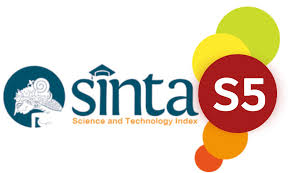Students’ Voice of Digital Literacy in Learning English
DOI:
https://doi.org/10.37253/iallteach.v4i2.7284Keywords:
Digital literacy, English, Students' perceptionAbstract
Digital literacy competence played an essential role in the growth of University students to achieve their goals of learning. This study was carried out to define the students’ perception of the use of digital literacy in learning English. The participant consists of the students of the Accounting and Information system program, at Bina Sarana Informatika University. 50 students were chosen by purposive sampling technique. The students had a distinctive response regarding the use of digital literacy competence and how they perceive it. This study was a qualitative case study. The data was gathered through open-ended questionnaires and classroom observation. The findings showed that the students had a positive voice regarding the use of digital literacy competence in learning English, they argued that digital literacy need willingness and critical thinking skills.
Downloads
References
Creswell, J. W. (2012). Qualitative inquiry and research design: Choosing among five approaches (4th ed). Sage Publications, Inc.
Gilster, P. (1997). Digital literacy. New York: Wiley Computer Publications.
Hamidah, N. (2021). Digital literacy in EFL teaching. ELTALL (English Language Teaching, Applied Linguistics and Literature). 2 (2), 90-103.
Hicks, T. and Turner, K. H. (2013). No longer a luxury: Digital literacy can't wait, The English Journal, 102(6), 58-65.
Hall, M., Nix, I. and Baker, K. (2013). "Student experiences and perceptions of digital literacy skills development: engaging learners by design?†The Electronic Journal of e-Learning. 11 (3), 207-225.
Kayaduman, H., & Battal, A. (2020). The Relationship Between Digital Literacy and Distance Education Perceptions. 13th Annual International Conference of Education, Research and Innovation, 2223–2227. https://doi.org/10.21125/iceri.2020.0533
Khan, N., Sarwar, A., Chen, T. B., & Khan, S. (2022). Connecting digital literacy in higher education to the 21st century workforce. Knowledge Management & E-Learning: An International Journal (KM&EL), 14(1), 46–61.
Mega, I. R. 2020. Students’ Perception of Digital literacy competence as learning sources. Majesty Journal. 2 (1). 47-53. https://doi.org/10.33487/majesty.v2j1.351/
Murtafi’ah, B. & Putro, N. (2019). Digital Literacy in the English Curriculum,: Models of learning activities. Acta Informatika Malaysia. 3(2). 10-13. https://doi.org/10.26480/aim.02.2019.1013
Pudjiati, D. & Fitria, T. (2022). Digital literacy in leaning listening skill between English and Non-English Department students through educational video. Leksika. 16(1). 99-107.




.png)






